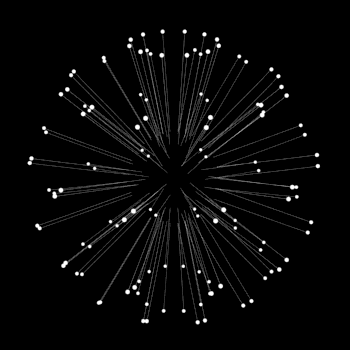We are to solve #lim_(xrarr0) (e^x-x-1)/(2x^2)#
Direct substitution yields an indeterminate form of #0/0#
#rArrlim_(xrarr0) (e^x-x-1)/(2x^2)= (e^color(red)(0)-color(red)(0)-1)/ (2(color(red)(0))^2) = (1-1)/(2(0))=0/0#
Thus, we apply L'Hospital's Rule because the function is a quotient and is in indeterminate form.
Mathematically, if
#lim_(xrarra)f(x)/g(x)= f(a)/g(a) = 0/0# or #+-oo/oo#,
we can we apply L'Hospital's Rule where;
#lim_(xrarra)f(x)/g(x)=lim_(xrarra)(f'(x))/(g'(x))#
Taking that into account, we can solve #lim_(xrarr0) (e^x-x-1)/(2x^2)# by taking the derivative of both the denominator and numerator until it yields a value that is not in indeterminate form .
#rArrlim_(xrarr0) (e^x-x-1)/(2x^2)=lim_(xrarr0) (e^x-1)/(4x)#
But #lim_(xrarr0) (e^x-1)/(4x)= (e^color(red)(0)-1)/ (4(color(red)(0)))=(1-1)/(0)=0/0# which is still in indeterminate form so differentiate again.
#rArrlim_(xrarr0) (e^x-1)/(4x)=lim_(xrarr0) (e^x)/(4)=(e^color(red)(0))/4=1/4#
Thus,
#rArrlim_(xrarr0) (e^x-x-1)/(2x^2) = 1/4#
For more on Limits, read below!
There are some tricks to finding limits.
1. Direct Substitution
The first method to apply when finding a limit is the direct substitution. Sometimes, this will work and give you the correct limit.
Example: #lim_(xrarr2) x^3-2x = color (red)2^3-2(color (red)(2)) = 8-4= 4 #
Other times, it will fail and gives you an indeterminate form such as #0/0, +-oo/oo#
NB: If the limit gives you #oo-oo, 0^0, 1^oo,# or #0*+-oo#, rewrite the function as a quotient and check if an indeterminate form of #0/0# or #+-oo/oo# exists before applying L'Hospital's Rule if other methods fail as well.
If direct substitution fails, you may want to simplify the function either by factoring, reducing complex fractions, or rationalizing before substituting.
Example: #lim_(xrarr-2) (x^2+6x+8)/(x+2) = (cancel((x+2))(x+4))/cancel(x+2)=color(red)(-2)+4=2#
2. Rational Functions
Provided #f(x)# and #g(x)# are polynomials of degree #color(red)(p)# and #color(blue)(q)# respectively, then:
#lim_(xrarroo)f(x)/g(x)= oo#, when #color(red)(p)>color(blue)(q)#
#lim_(xrarroo)f(x)/g(x)= 0#, when #color(red)(p)< color(blue)(q)#
#lim_(xrarroo)f(x)/g(x)=# leading coeeficients of #f(x)# and #g(x)#, when #color(red)(p)=color(blue)(q)#
Examples: #lim_(xrarroo)(x^2+5x-2)/(7x+4)= x^color(red)(2)/(7x^color(blue)(1))=x/7=oo/7=oo#
#lim_(xrarroo)(7x+4)/(x^2+5x-2)= (7x^color(red)(1))/x^color(blue)(2)=7/x=7/oo=0#
#lim_(xrarroo)(5x-2)/(7x+4)= (5x^color(red)(1))/(7x^color(blue)(1))=5/7#



